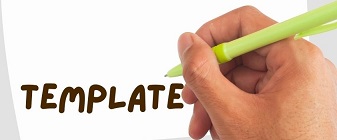Evaluation of Tender Efficiency as a Basis for Determining Methods for Procurement of Laboratory Equipment Within the Food and Drug Supervisory Agency
(1) Public Administration, Politeknik Sekolah Tinggi Ilmu Administrasi, Lembaga Administrasi Negara, Indonesia
(2) Public Administration, Politeknik Sekolah Tinggi Ilmu Administrasi, Lembaga Administrasi Negara, Indonesia
(3) Public Administration, Politeknik Sekolah Tinggi Ilmu Administrasi, Lembaga Administrasi Negara, Indonesia
(*) Corresponding Author
DOI: https://doi.org/10.26858/ja.v9i2.41513
Abstract
Keywords
Full Text:
PDFReferences
Abud, M. (2012). Indonesia: New digital nation. Internews Center for Innovation and Learning.
Avle, S., Lin, C., Hardy, J., & Lindtner, S. (2020). Scaling techno-optimistic visions. Engaging Science, Technology, and Society, 6, 237–254.
Basri, H., & Nabiha, A. K. S. (2014). Accountability of local government: The case of Aceh Province, Indonesia. Asia Pacific Journal of Accounting and Finance, 3(1), 1–14.
Colorafi, K. J., & Evans, B. (2016). Qualitative descriptive methods in health science research. HERD: Health Environments Research & Design Journal, 9(4), 16–25.
Doyle, L., McCabe, C., Keogh, B., Brady, A., & McCann, M. (2020). An overview of the qualitative descriptive design within nursing research. Journal of Research in Nursing, 25(5), 443–455.
Drozdov, A. N., & Belkina, E. R. (2020). Implementation of laboratory works on the modern laboratory equipment. IOP Conference Series: Materials Science and Engineering, 786(1), 12042.
Gellert, P. K. (2015). Optimism and education: The new ideology of development in Indonesia. Journal of Contemporary Asia, 45(3), 371–393.
Gustina, A., Putera, P. B., Kusuma, P., Hastanto, W. Y., & Kurniawati, W. (2020). Functional food in Indonesia: An analysis of legal and institutional framework. IOP Conference Series: Earth and Environmental Science, 443(1), 12089.
Irwansyah, F. S., Slamet, C., & Ramdhani, M. A. (2018). The analysis of determinant factors in selecting laboratory equipment in chemistry education experiment. Chemical Engineering Transaction, 63, 793–798.
Jiabao, W. (2022). Report on the Work of the Government. DigiCat.
Keqiang, L. (2016). Report on the Work of the Government. Delivered at the Fourth Session of the 12th National People’s Congress of the People’s Republic of China on March, 5, 2016.
Kitley, P. (2014). Television, nation, and culture in Indonesia. Ohio University Press.
Lambert, V. A., & Lambert, C. E. (2012). Qualitative descriptive research: An acceptable design. Pacific Rim International Journal of Nursing Research, 16(4), 255–256.
Milanovic, J. Z., Milanovic, P., Kragic, R., & Kostic, M. (2018). “ Do-It-Yourself” reliable pH-stat device by using open-source software, inexpensive hardware and available laboratory equipment. PLoS One, 13(3), e0193744.
Najemi, A., Purwastuti, L., & Nawawi, K. (2019). The Role of the Food and Drug Supervisory Agency (Bpom) in Managing Circulation of Cosmetics and Hazardous Foods. Berumpun: International Journal of Social, Politics, and Humanities, 2(2), 76–92.
Nur, I., & Susanto, S. (2020). Social conflict in Indonesia: safeguarding a nation as a new approach for resolving national disintegration. Journal of Social Studies Education Research, 11(2), 151–173.
Popović, B., Popović, N., Mijić, D., Stankovski, S., & Ostojić, G. (2013). Remote control of laboratory equipment for basic electronics courses: A LabVIEW‐based implementation. Computer Applications in Engineering Education, 21(S1), E110–E120.
Rahadian, A., Ma’mun, A., Berliana, B., & Nuryadi, N. (2021). 2018 Asian Games Success: Policies for the Development of Indonesian Elite Athletes. Jurnal Maenpo: Jurnal Pendidikan Jasmani Kesehatan Dan Rekreasi, 11(1), 1–12.
Reid, A. (2019). Djakarta in 1952–53: A Moment of Nation-building Optimism. Indonesia, 108, 65–88.
Tirachim, S. A., & Sugiyono, H. (2022). Responsibility of the Food and Drug Supervisory Agency in Granting Licenses for the Distribution of Food Products Containing Pigs Sold in Minimarkets. Budapest International Research and Critics Institute (BIRCI-Journal): Humanities and Social Sciences, 5(1), 4907–4917.
Vaismoradi, M., Turunen, H., & Bondas, T. (2013). Content analysis and thematic analysis: Implications for conducting a qualitative descriptive study. Nursing & Health Sciences, 15(3), 398–405.
Widodo, H. P. (2018). A critical micro-semiotic analysis of values depicted in the Indonesian Ministry of National Education-endorsed secondary school English textbook. In Situating moral and cultural values in ELT materials (pp. 131–152). Springer.
Article Metrics
Abstract view : 123 times | PDF view : 21 timesRefbacks
- There are currently no refbacks.
Copyright (c) 2022 Dadang Supriyanto, R. Luki Karunia, Bambang Giyanto

This work is licensed under a Creative Commons Attribution 4.0 International License.






























 under a
under a